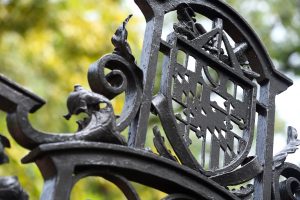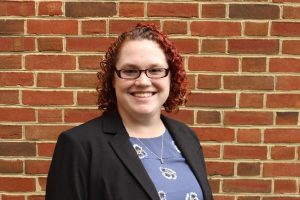

Moriah Katt, PhD
Albany, New York
Moriah Katt recently defended her PhD in materials science and engineering, focusing on modeling the human blood-brain barrier in health and disease. Moriah is from Albany, New York, where she completed her B.S. at Rensselaer Polytechnic Institute in Materials Engineering.
How did you get interested in materials science and engineering? What interests you the most about the field?
Materials science provided answers to many of the questions that I had in high school chemistry; how molecular and atomic interactions impact the physical characteristics of the bulk material. Then I learned that anything and everything is a material and that I could apply my knowledge to nearly any problem that I was interested in.
What made you decide to come to Johns Hopkins?
I decided to come to Johns Hopkins because of the exciting research opportunities, and the ability to collaborate with a wide variety of scientists.
What research were you involved in during your time in MatSci? What was your role?
I have been involved in modeling the human blood-brain barrier, or the vasculature of the brain. Through this work, I brought stem cell differentiation protocols into the lab and changed the entire direction of research of the lab. I was able to identify the key factors that derived brain microvascular endothelial cells need to adhere and survive in a 3D blood-brain barrier model. I also researched the role of the cerebrovasculature in neurodegenerative diseases, looking at dysfunction in passive and active transport across a monolayer of endothelium.
What impact do you hope to make through your research?
I hope to identify mechanisms that are critical in the progression of cerebrovascular diseases. I hope to develop tools that can be used to answer a wide variety of questions that center on the blood-brain barrier.
Outside of lab and class: were you involved with (groups, organizations, intramurals, etc.)?
Not really.
What sort of impact do you hope to have either as an engineer or in a STEM field?
My ultimate goal is to improve quality of life for patients. I hope to do this by identifying mechanistic steps for disease progression and by creating tools for research.
What are your plans or goals after graduation?
I will be accepting a post-doctoral position at a university (TBD) continuing my research on the blood-brain barrier.